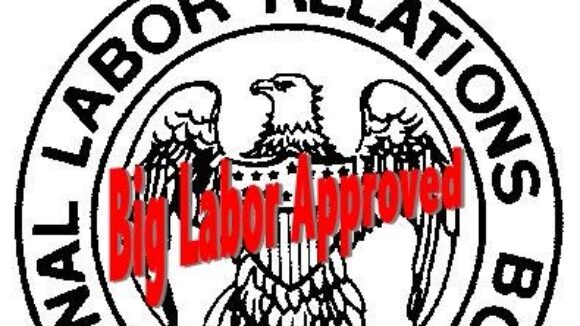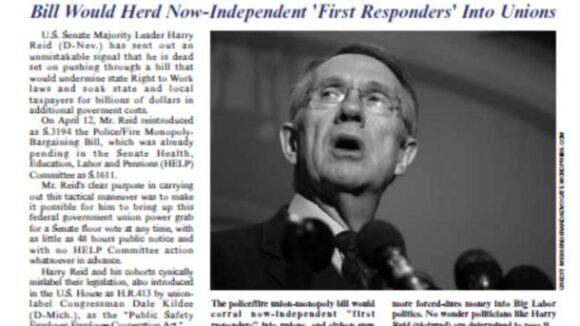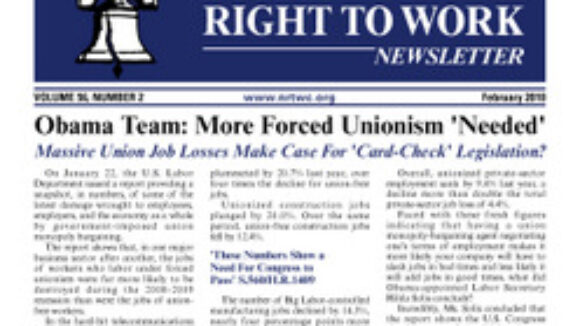Capitol Hill's 'Lame Ducks' Are Dangerous
(Source: September 2010 NRTWC Newsletter) Since forced-unionism cheerleader Barack Obama became President in January 2009, Big Labor bosses and their yes-men in the U.S. Congress have helped him inflict a lot of damage on employees, businesses, and taxpayers across America. To take just the latest example, last month union puppet politicians in the Senate and House rubber-stamped a special-interest measure (H.R.1586) that will ultimately extract an additional $10 billion from beleaguered private-sector employees and businesses to maintain and expand wasteful unionized government payrolls. From 1998 to 2007, the number of instructional employees at K-12 public schools nationwide soared by 15.9% -- an increase 3.5 times greater than the 4.5% growth in school enrollment over the same period. The rapid-fire expansion of school payrolls, roughly 70% of which are unionized, produced no measurable improvement in educational outcomes, but cost taxpayers tens of billions of dollars. And the terms on which H.R.1586 piles on another $10 billion are expressly designed to ensure that currently strapped states do not pare back the past decade of teacher union boss-driven growth in K-12 payrolls in order to avoid increasing the burden on taxpaying individuals and businesses. On August 11, just one day after the House had okayed H.R.1586, President Obama signed it into law. Big Labor Bosses Still Far From Satisfied




